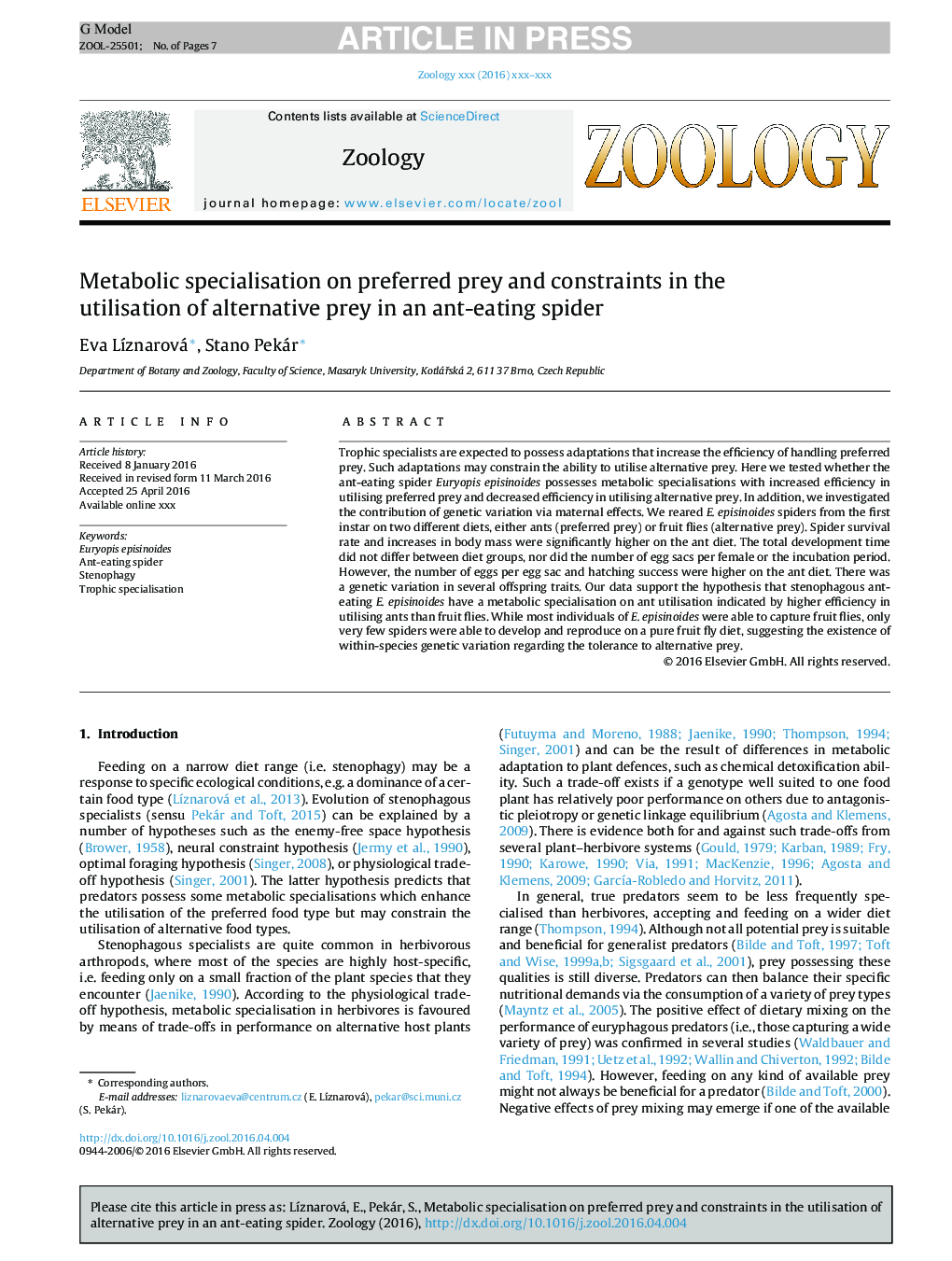| Article ID | Journal | Published Year | Pages | File Type |
|---|---|---|---|---|
| 5586579 | Zoology | 2016 | 7 Pages |
Abstract
Trophic specialists are expected to possess adaptations that increase the efficiency of handling preferred prey. Such adaptations may constrain the ability to utilise alternative prey. Here we tested whether the ant-eating spider Euryopis episinoides possesses metabolic specialisations with increased efficiency in utilising preferred prey and decreased efficiency in utilising alternative prey. In addition, we investigated the contribution of genetic variation via maternal effects. We reared E. episinoides spiders from the first instar on two different diets, either ants (preferred prey) or fruit flies (alternative prey). Spider survival rate and increases in body mass were significantly higher on the ant diet. The total development time did not differ between diet groups, nor did the number of egg sacs per female or the incubation period. However, the number of eggs per egg sac and hatching success were higher on the ant diet. There was a genetic variation in several offspring traits. Our data support the hypothesis that stenophagous ant-eating E. episinoides have a metabolic specialisation on ant utilisation indicated by higher efficiency in utilising ants than fruit flies. While most individuals of E. episinoides were able to capture fruit flies, only very few spiders were able to develop and reproduce on a pure fruit fly diet, suggesting the existence of within-species genetic variation regarding the tolerance to alternative prey.
Keywords
Related Topics
Life Sciences
Agricultural and Biological Sciences
Animal Science and Zoology
Authors
Eva LÃznarová, Stano Pekár,
